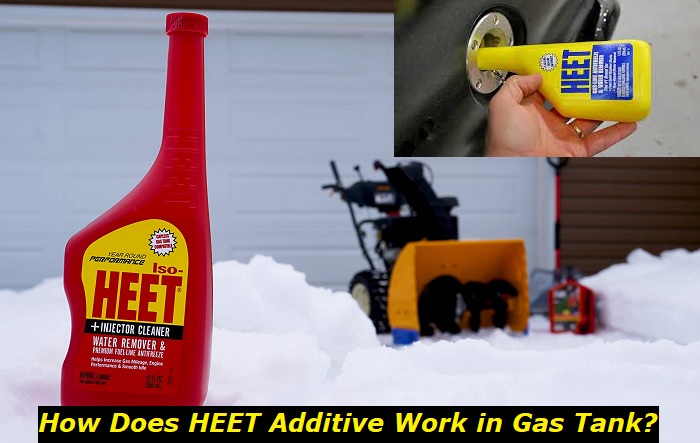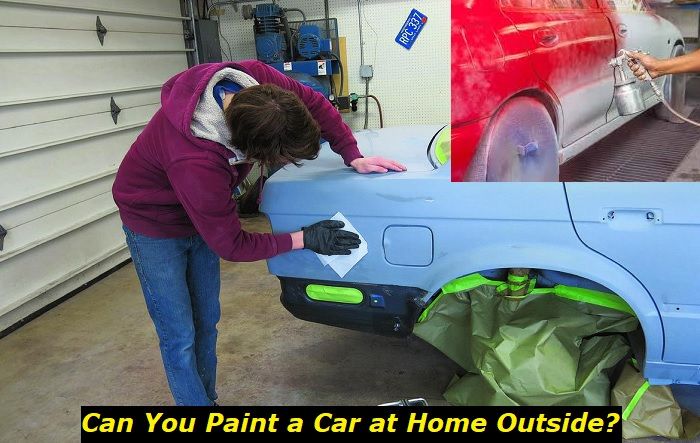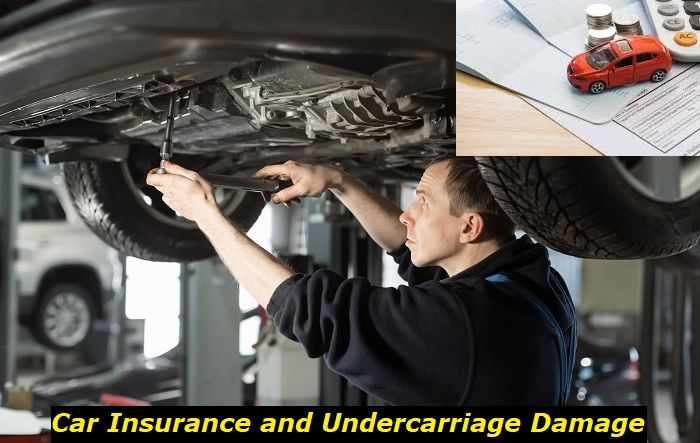Heet is a special product for gasoline treatment. It is said to remove water from gas and save your fuel system from problems associated with water freezing in the injectors and gas lines. Well, although I am very skeptical about all kinds of fuel additives for automobiles, we have to learn more about this one - it sounds like Heet is going a good job.
In short, Heet is engineered to delete water from gasoline in your car, but it's not a magical substance, so I want to see how it works and if it at all works. Also, I want to understand what people who used Heet say about its effectiveness. You are welcome to join me in this small investigation!

Here's what I'm going to tell you today:
- What's Heet and how it works according to the manufacturer?
- Is it worth the money and does it actually work?
- What do car owners say about Heet?
- When may you need to add Heet to your gasoline?
- What are some alternatives to Heet?
- Why is water in your gas tank and what to do with it?
Let's get started!
What's Heet and how does it work in your car?
So, the brand offers Heet and Iso-Heet. The yellow Heet bottle is OK for cold start and the Iso-Heet is said to be great for all types of engines all year round. This is basically the chemical product that is made to absorb water and antifreeze from your gasoline and allow them to burn successfully in the process of combustion.
It all sounds magical and here's what they claim Heet can do:
- remove water from gasoline;
- remove antifreeze from gasoline;
- work well with salty sea water;
- clean fuel injectors;
- improve the cold start in freezing temperatures;
- protect both diesel and gas engines;
- work well in all types of internal combustion engines.
Wow, if you believe the advertisement, you maybe now are opening the new tab and searching where you can buy Heet. But hold your horses! I am not writing an affiliate blog here and you will get to know something that will obviously reduce your with to spend the money right now. At least, you will have some things to consider - just keep reading.
What do I personally think of Heet?
The main ingredient of Heet is methanol while Iso-Heet consists mainly of isopropanol and some additives that are claimed to clean the injector in your vehicle. Well, at this point, I understand that we are being robbed by this brand that sells us affordable methanol at a huge price.
Now, I personally don't think that adding methanol or isopropanol to your engine regularly will help you maintain the health of your engine. There are engines that work on ethanol-rich fuel and they are called Flex-Fuel engines. But other units are not made for methanol or isopropanol. So, the proper work is just not guaranteed.
And I completely disagree with the statement that adding this magical fluid to your gasoline all year round protects your injectors and allows you to take all the water off the tank.
First of all, ask yourself this question: why do I have water in my fuel tank? You shouldn't! And if you really do have water in your fuel tank, you should find the reason for this issue and repair it. Don't just add some additives and think you are OK with that.
Secondly, before adding anything to the gas tank, you should check if this chemical is actually compatible with your car. I can easily imagine the situation when adding Heet can kill your engine or affect the injection system in a very unpleasant way. So, at least, make sure that nothing will happen to your engine before pouring something else than fuel into your gas tank.
What do car owners think of Heet?
It's so hard to find proper reviews now of any product because the majority of them are just paid reviews from freelance writers that say something like: "My car was dead and then I added Heet and it's now driving like new". Well, if you read something like this - just know that it's not true.
However, most authorized Amazon buyers still recommend this product. But if you carefully read reviews, you will see that most people use it in special equipment, water transport, gas generators, diesel engines, etc. I'm curious why the manufacturer still advertises the product as a gas additive for cars.
Among negative reviews, there are still many customers who, like me, are very skeptical about any fuel additives but still decided to try Heet for some reason.
When may you actually need Heet in your engine?
Well, you may want to use Heet or Iso-Heet to absorb water from your fuel tank if it got there by chance. This may happen in your boat or water scooter. Also, this is a usual thing for gas or diesel generators that work outside. For cars, water in the tank is something really exotic. And if this happens, I would recommend taking the tank off the car and cleaning it instead of adding something like Heet.
Here are some examples of situations when Heet can actually help:
- you accidentally poured some water into the gas tank in your vehicle;
- water got directly into the gas tank in your boat;
- the gas tank of your generator was open under the rain;
- water may have gotten into the diesel tank in your equipment.
If you noticed that your engine shows signs of the water in the fuel tank constantly, adding any additives is actually a bad idea and it won't even temporarily solve the problem. You need to know where the water could get there from. In most cases, the thing is not in the tank but in the cooling system that may be leaking to the combustion chamber. And no, you can't solve this problem with an additive.
Water in your gas tank - why?
Just buying an additive and pouring it into your tank is not something really good if you constantly have a problem with water burning in the combustion chambers. If this happens, you need to understand the source of this water and make sure that you know how to solve the problem.
Here are some examples of the reasons:
- Bad fuel cap. If your cap is not sealing the gas tank properly, water may get in there in small amounts. Replace the cap if this is the case in your situation.
- Poor quality of fuel. In this case, you should change your usual place of buying fuel. This is especially possible if you are buying gas in small local non-chain gas stations.
- Corroded gas tank. One more reason is the gas tank that is corroded and has a hole in the top of it. Inspect the tank and if you find this problem, replace it with the new one.
- Antifreeze leaking into the combustion chamber. You may have symptoms of water in your gas if antifreeze leaks into the engine and then burns. This requires immediate repairs.
I can continue telling you more about the symptoms and reasons of water in gas or diesel but this is not the primary aim of this article. Let's come back to Heet.
Actually, Heet can help in those situations only when you accidentally put some water into the fuel tank or it got there by chance when you forgot to tighten the gas cap. In all other cases, using Heet is something like applying a medical patch to the broken arm and hoping it will somehow be fine.
Are there any alternatives to Heet?
Yes, you will find several popular brands of fuel additives but I won't mention them here to not advertise anything. I actually think that all brands are equally bad because they aggressively advertise their products as some magical solution to all problems and these products are actually cheap methanol or isopropanol that can be bought at much lower prices.
And yes, those products can be of some use if you accidentally pour some water into the gas tank and don't want to take the tank off the car. This makes sense to use a couple of bottles of Heet or some other product of the kind just one time and then forget about it.
But using Heet or any other alternative constantly is not something you will want to do to your vehicle. The only exception may be the water transport which may need some proper treatment from water in the gas tank. And in that case only if this problem bothers your transport and affects your engine. If not, just forget about it.
Final thoughts
I still think that using Heet, Iso-Heet, or any other fuel additive to absorb water from your fuel tank is something really useless. At least, you shouldn't do this on a regular basis. If something is wrong with your vehicle and it gathers water in the gas tank, just find the reason and repair the car. If you don't have problems with water in the tank, why are you at all thinking about some additives?
About the authors
The CarAraC research team is composed of seasoned auto mechanics and automotive industry professionals, including individuals with advanced degrees and certifications in their field. Our team members boast prestigious credentials, reflecting their extensive knowledge and skills. These qualifications include: IMI: Institute of the Motor Industry, ASE-Certified Master Automobile Technicians; Coventry University, Graduate of MA in Automotive Journalism; Politecnico di Torino, Italy, MS Automotive Engineering; Ss. Cyril and Methodius University in Skopje, Mechanical University in Skopje; TOC Automotive College; DHA Suffa University, Department of Mechanical Engineering






Add comment